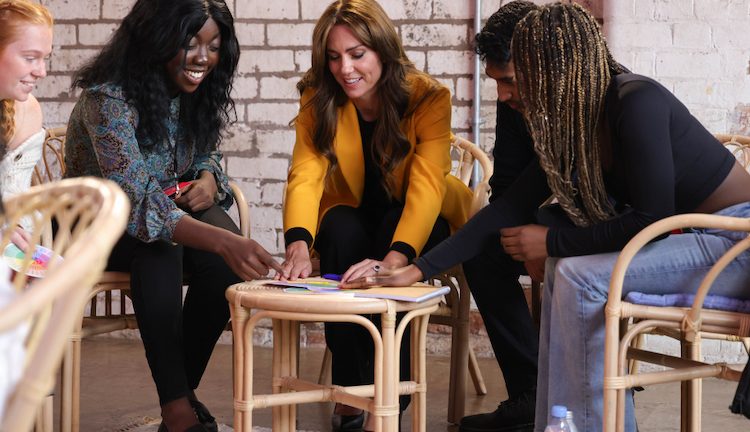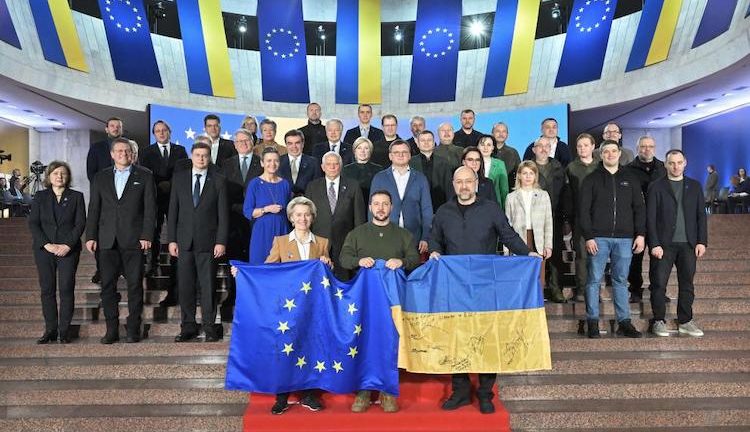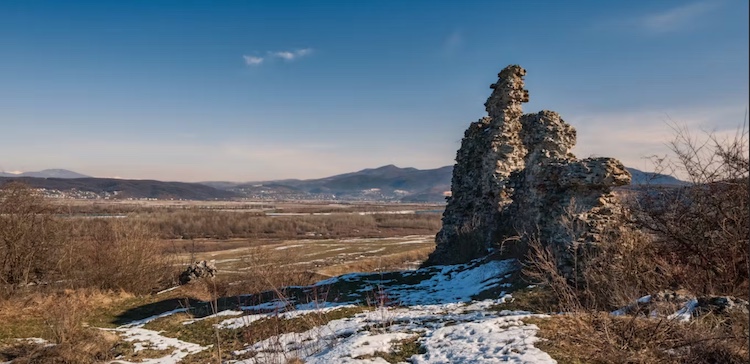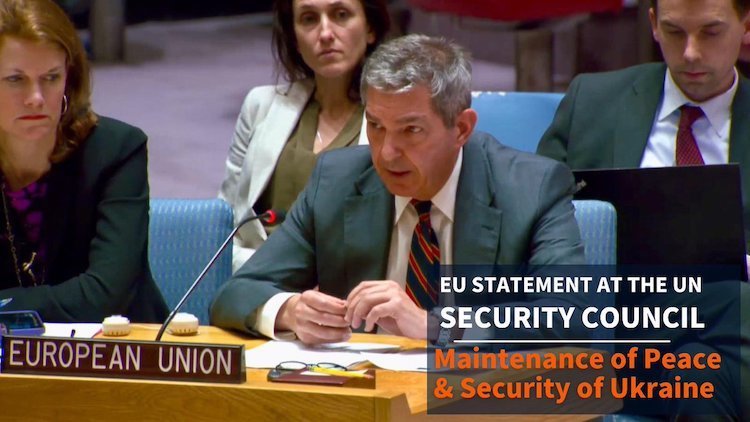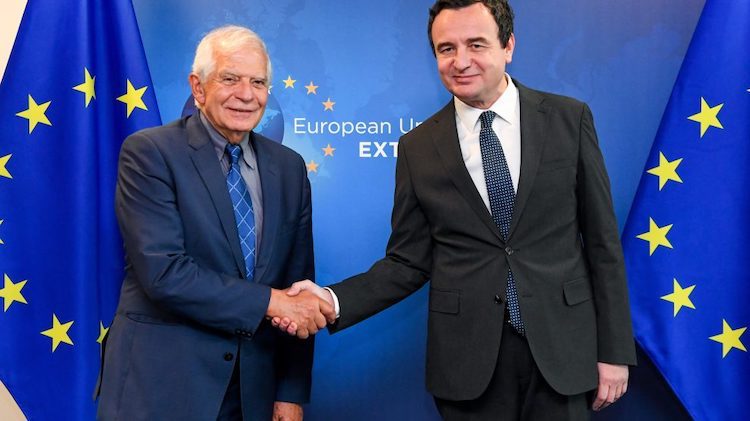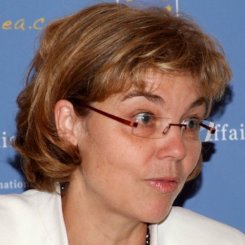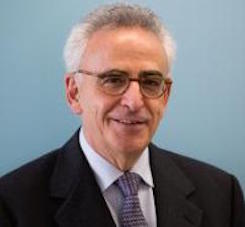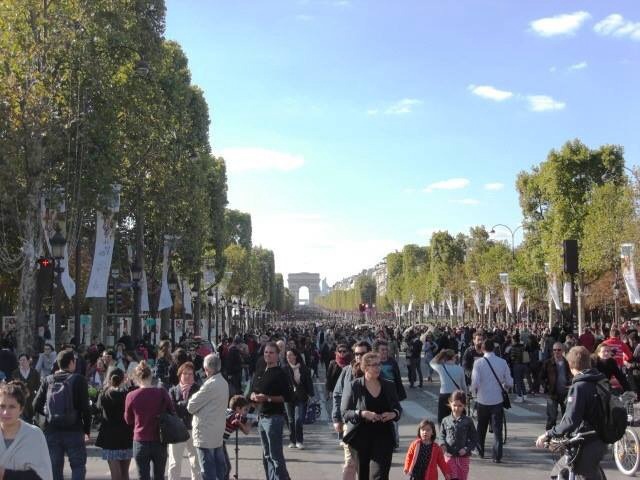By Azu Ishiekwene The writer is the Managing Director/Editor-in-Chief of LEADERSHIP newspaper based in Abuja, Nigeria. ABUJA | 21 March 2024 (IDN) — The press has been unkind to Kate Middleton, the Princess of Wales. I find it hard to understand why, of all the problems at this time, from the cost-of-living crisis to the […]
Ukraine War: European Union May Risk Its Political Future
By Michael von der Schulenburg, Hans-Joachim Funke* BERLIN | 19 March 2024 (IDN) — The deteriorating military situation in Ukraine and the United States’ increasing withdrawal from this war created a situation in which the EU is now pushed to the forefront in dealing with this problem. Probably for the first time since the end […]
The First Europeans Reached Ukraine 1.4 Million Years Ago—New Research
By John Jansen, Czech Academy of Sciences* PRAGUE, Czechoslovakia | 11 March 2024 (IDN) — During warm periods in Earth’s history, known as interglacials, glaciers the size of continents pulled back to reveal new landscapes. These were new worlds for early humans to explore and exploit, and 1.4 million years ago this was Europe: a […]
Russia Must Withdraw Unconditionally from Ukraine
By Stavros Lambrinidis The author is Head of the European Union‘s Delegation to the United Nations, at the UN Security Council. Following are extensive excerpts from his Statement to the UN Security Council on 8 March 2024. NEW YORK | 10 March 2024 (IDN) — When the UN Secretary-General visited Kyiv in 2022, Russian missiles […]
French Police Found Guilty of Racist Brutality, but Sentence is Light
By Lisa Vives, Global Information Network NEW YORK | 22 January 2024 (IDN) — Three officers who received suspended jail sentences over their violent assault of a French Black man are symbols of out-of-control racist police violence tolerated by the government in France. The officers were convicted on 19 January of “voluntary violence” towards the […]
Kurti-EU Tensions Harming Kosovo’s National Interests
By Dr Alon Ben-Meir* NEW YORK. 24 September 2023 (IDN) — Kosovo’s Prime Minister Albin Kurti is still wallowing in his obsession with Serbia and seems to never understand that Kosovo’s independence, security, and well-being do not depend on what Serbia’s President Vucic says or does but only on the commitments of the EU and […]
The Refugee Challenge Calls for Exceptional Urgent Measures
By Mirjam van Reisen* | IDN-InDepthNews Viewpoint
BRUSSELS (IDN) – With the 28-nation EU desperately trying to find a solution to the unprecedented inflow of people seeking international protection and a better life, the size of the problem and the political battlefield are seriously damaging European cooperation and undermining citizens’ trust in the European project.
However, the proposals presented by the European Commission six months ago were reasonable and fair. Strengthening EU’s diplomacy to resolve the Syrian conflict, stepping up assistance to the countries neighbouring Syria, reinforcing external border controls and relocating 40,000 refugees based on a fair distribution key – all these made complete sense and could have been an adequate answer to the situation, at that point in time.
But Member States didn’t play ball. The shameful lack of solidarity, pure selfishness and political short sightedness of a number of (especially new) Member States frustrated any attempt to manage the situation in a reasonable and serene way. Despite all the (European) Councils, precious time has been lost and the situation today is worse than ever before, threatening to hurt the very fundaments of the EU.
Minor Compromises Are Worthwhile For Better EU-Turkey Relations
By Michael Leigh* | IDN-InDepthNews Viewpoint
Sir Michael Leigh is a Senior Advisor at the German Marshall Fund of the United States.
WASHINGTON (IDN | GMF) – German Chancellor Angela Merkel’s dash to Istanbul on October 18 was a gift to Turkish President Recep Tayyip Erdoğan. Erdoğan is hoping that his Justice and Development Party (AKP) will regain its majority in the November 1 general election, after a setback last June, enabling him to call a referendum to strengthen the president’s constitutional powers.
The outcome of the general election could, therefore, settle Turkey’s political fate for years to come, and accentuate the country’s drift toward authoritarian, sectarian rule.
The chancellor’s visit, in the midst of the refugee crisis and after Turkey’s most lethal terrorist attack in decades, was intended to win the Turkish president’s support for a joint action plan to stem refugee flows that are undermining the EU’s internal open borders policy. Merkel’s trip followed the postponement of the European Commission’s annual report on Turkey until after the Turkish election. Insiders claim that the delay occurred for internal procedural reasons.
EU Gives Additional Funds to Promote Entry into Force of Nuclear Test Ban Treaty
By Ramesh Jaura | IDN-InDepthNews Report
BERLIN (IDN) – With a view to promoting entry-into-force of the nuclear test ban treaty, the European Union (EU) has decided to increase its support to the Preparatory Commission of the Comprehensive Nuclear-Test-Ban Treaty Organisation (CTBTO) by contributing an additional amount of 3 million euros (about 3.9 million dollars). This brings the bloc’s voluntary financial contributions since 2006 to a total of some 19 million euros (nearly 21.5 million dollars).
France Pumps Up Climate Change Volume to Avert Failure
By A.D. McKenzie | IDN-InDepthNews Analysis
PARIS (IDN) – Tourists and locals walking along the River Seine, near the famed Musée d’Orsay, are currently able to charge their mobile phones at three unlikely installations: solar-powered street lamps.

